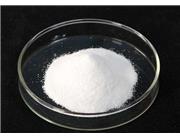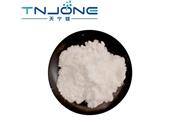Manufacturer Provide Pharmaceutical Grade Intermediate CAS15307-81-0 Diclofenac Potassium

Introduction
Product Name: Diclofenac Potassium
Other Name :potassium 2-(2-(2,6-dichlorophenylamino)phenyl)acetate;Diclofenic potassiuM;Benzeneaceticacid
C.A.S NO. :15307-81-0
Assay (%)(HPLC, Basis on drying):99%
Molecular formula: C14H10Cl2KNO2
Appearance: White Crystal Powder
Molecular weight :334.24
Melting Point :300-330 °C(lit.)
Storage Condition: Store in cool and dry places ,keep away from strong light
Diclofenac potassium is a non-steroidal anti-inflammatory drug (NSAID) used to treat moderate pain, inflammation, and fever. While it is generally a safe medication, mild and serious side effects can occur. Patients taking this drug should follow some precautions in order to reduce their risk, and diclofenac potassium may not be appropriate for all patients. Diclofenac potassium is most frequently used for conditions in which the lining of the joints breaks down or swells, including osteoarthritis, rheumatoid arthritis, and ankylosing spondylitis.
Effects:
Minor side effects of diclofenac potassium can include diarrhea, constipation, bloating, ringing in the ears, and lightheadedness. Other side effects are possible, though more rare, and allergic reactions are also a possibility. Any persistent, severe, or concerning side effects should be reported to the patient's doctor. If experiencing excessive fatigue, yellowing of the skin or eyes, swelling, difficulty breathing, blistering rash, or any other severe side effect, patients should not take any more NSAIDs until they have spoken with a medical professional.
The most serious potential side effect of taking diclofenac potassium is an increased risk of cardiovascular problems, such as heart attack or stroke. People who are taking NSAIDs should seek immediate medical attention if they experience pain in the chest, difficulty breathing, slurred speech, or weakness in one part of the body. A personal or family history of cardiovascular problems may increase this risk.
Another potentially serious side effect of diclofenac potassium is an increased risk of gastrointestinal problems, including holes in the stomach or intestine, ulcers, or bleeding. If experiencing stomach pain, severe vomiting or vomit that looks like coffee grounds, black tar-like stools, or blood in the vomit or stools, patients should seek immediate medical attention. People who have ever had ulcers or a bleeding stomach should discuss this with their doctors. Heavy alcohol consumption can also increase risk.
Formulations and Dosage:
People who have asthma, lupus, liver disease, or kidney disease should discuss this with the prescribing doctor. Use of this medication is generally not recommended during pregnancy, particularly in the last few weeks of gestation, and women who are pregnant, trying to become pregnant, or nursing should speak to their doctors about this. Diclofenac potassium interacts with a number of medications, including blood thinners, steroids, diuretics, and other NSAIDs, so patients need to tell the prescribing doctor about all prescription and over the counter medications taken, including vitamins and supplements.
| Tests |
Specification |
Results |
Identification |
Musculine reaction |
Conform |
Description |
White or yellow crystalline powder |
Conform |
Clarity and Color |
Should conform |
Conform |
Specific rotation | -92°~-109° | -97.5° |
Other Impurities | ≤0.5% | 0.16% |
Loss on drying | ≤3.0% | 2.0% |
Limit of(R)-olfx | ≤1.0% | 0.45% |
Residue on ignition | ≤0.2% | 0.05% |
Heavy metals | ≤0.002% | Conform |
Assay | ≥98.5% | 99.0% |


 China
China










